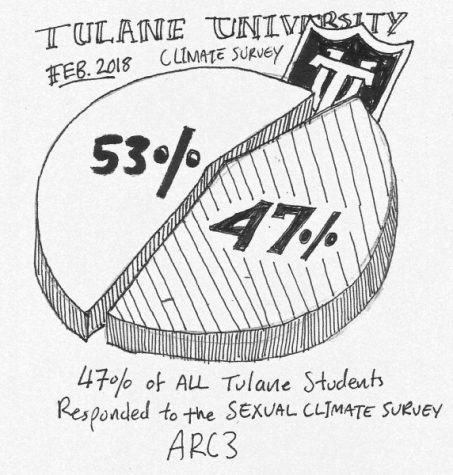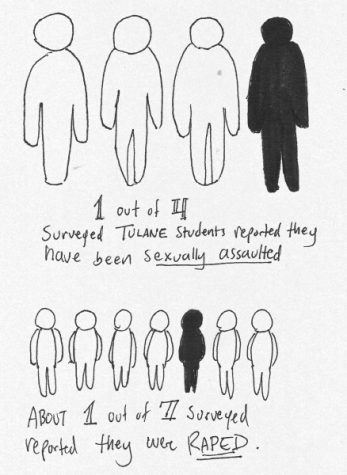Tulane continues work on Title IX with implementation of All In campaign

Tulane issued a climate survey to its students last February to assess instances of sexual harassment and sexual violence among the student body. Of the 47 percent of students that responded to the survey, 25 percent said they had been sexually assaulted during their time at Tulane.
The administration responded by launching the Wave of Change campaign which aimed, in the words of President Fitts, to “create a culture where all students are safe from the threat of sexual misconduct on campus.”
In the seven months since the results of the climate survey were released, one major change was the termination of Wave of Change and the implementation of All In: Tulane’s Commitment to Stop All Sexual Violence.
“Once Tania Tetlow left Tulane, the administration chose to scrap Wave of Change in favor of a program run out of the Campus Health office entitled All In,” Allison Foster, Undergraduate Student Government director of student health and wellness, said. “This program focuses closely on prevention of sexual assault, with a goal to stop sexual violence at Tulane.
Additionally, Tulane has hired several new staff members in campus health, particularly working with Greek organizations and marginalized groups which often face disproportionately high assault rates.
“A few examples include bringing in researchers to conduct qualitative research with LGBTQ+ students and students of color, creating a men’s mentorship program, and developing a monthly newsletter on sexual violence for the community,” Meredith Smith, assistant provost for Title IX and clery compliance, said.
Another important change was the creation of Project IX, a Tulane program that allows students to design and implement approaches to reduce instances of sexual assault.

Led by Tulane professor Allison Schiller, students were organized into several different “challenge areas.” Some groups focused on highlighting the positive aspects of consent through interactive art pieces on campus. Others proposed working with Greek life to further a “consent culture.”
Still, others, including sophomore Caroline Slagle, designed a branding campaign to increase awareness of the meaning of consent.“We split up the definition of consent on different merchandise,” Slagle said. “We want this to be like a wave that surrounds campus so everyone is constantly surrounded by all these different positive images of consent.”
At the end of the 2018 spring semester, the program participants presented their ideas to garner student and administrative, support. But when Slagle and Schiller were asked if any of their programs had been carried out yet, both said they did not know.
“We actually started our fall class this [past] Monday, and I think this semester is going to be focused on getting these projects implemented on campus,” Slagle said.
Both Schiller and Slagle said they were hopeful about future change but expressed hesitation of the accomplishments thus far.
“I’m kind of worried that new freshmen have come in with the ‘classic’ expectation of what Tulane is,” Slagle said. “Because they haven’t been around for the climate survey, they haven’t been around for Project IX, they haven’t been around for this wave of anger and resistance and passion to change. So there is definitely going to be an effort necessary for bringing the freshman up to speed.”

But for new and returning students alike, there are abundant ways to contribute to Tulane’s changing culture.
“There are so many ways that students can get involved,” junior Eva Dils said. “From the little things like the bystander intervention training which is literally like a one hour commitment of your life to taking a 16 week class to making a three-year commitment by joining SAPHE.”
“I really want to be sure that we’re giving credit to the students,” Schiller said. “All the students whether they were involved in Project IX or they work in SAPHE or any of these organizations, I understand how hard these students are working to change their culture. I think that the more the student voices can contribute to a healthy campus, the better.”
Strong efforts by students, faculty and the administration have already been taken and are planned to continue.
“We need the entire undergraduate student body to stay motivated,” Smith said. “This is a marathon, for sure, and we haven’t even finished the first mile yet.”
Campbell Lutz contributed to the reporting of this article.
Your donation will support the student journalists of Tulane University. Your contribution will allow us to purchase equipment and cover our annual website hosting costs.


